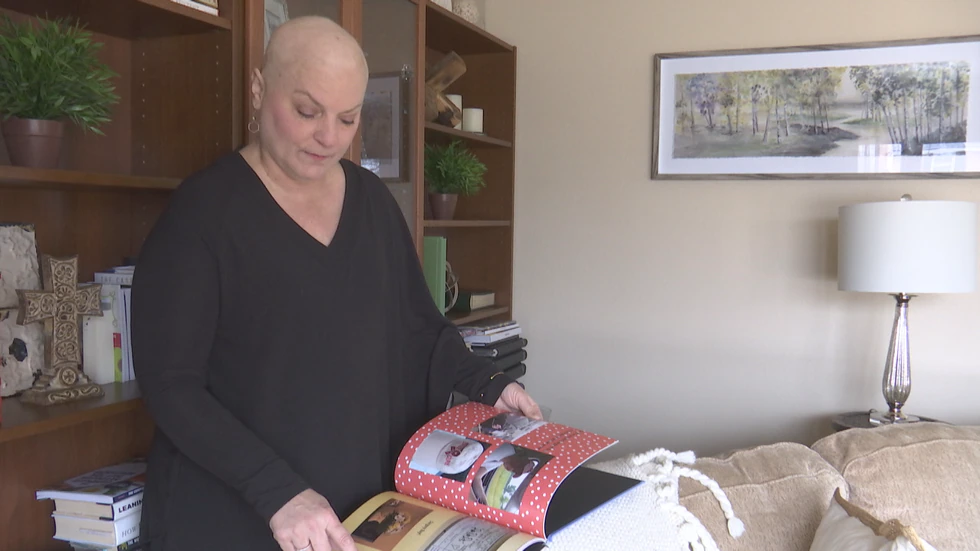YOUR HEALTH MATTERS: Better breast cancer screening coverage proposed by new Wisconsin bill – WBAY

NEENAH, Wis. (WBAY) – A new bill in Wisconsin is expected to help women with dense breast tissue get better insurance coverage for screening against breast cancer, which can be hard to spot on their mammograms.
The proposed bill was set to be reviewed by a Wisconsin assembly committee this month but didn’t because the assembly’s session ended. Lawmakers say it will now be presented in January 2023.
One local woman, Gail Zeamer, has been fighting for this bill while also fighting stage 4 breast cancer. Zeamer was diagnosed with stage 3 breast cancer in February 2016 but as of November 2021 has faced stage 4 breast cancer that has spread to her bones and her brain.
We’ve covered Zeamer’s story for years on Action 2 News as she has advocated for Wisconsin breast cancer screening legislation so even one woman doesn’t have to suffer the way that she has.
Related: Bill would require notice for women with dense breast tissue
Related: Governor signs breast density bill into law
“Dense breast tissue shows up as white on mammograms and so do tumors,” Zeamer shared. “It was basically a tumor hiding in plain sight. Nobody could tell it was there.”
Zeamer lives in Neenah and has been married for almost 25 years and has two college-age daughters. She also has category C breast tissue which is considered to be dense along with category D. Wisconsin Assembly Bill 416 and Senate Bill 413 would require health insurance policies cover an additional breast screening beyond a mammogram for women with dense breast tissue. A necessary step doctors say most women don’t even know they need.
“It happens with my mom too,” Dr. Tchaiko Parris, a diagnostic breast radiologist at Bellin Health, emphasized. “I actually have to tell her, ‘No Mom. Go for your screening breast ultrasound.’ She gets a letter that says, ‘my mammogram is okay!’ I’m like ‘yeah! What is your breast tissue density?’ She goes ‘Oh, it says I’m dense.’ I’m like ‘right back to the doctor’s office.’”
An additional ultrasound can cost $150 to $500 and an MRI can cost thousands Zeamer explained. With this legislation insurers would have to either fully cover an ultrasound or have a maximum co-pay of just $50.
Zeamer said 50% of women who go in for mammography have dense breast tissue like her. When asked if she feels a responsibility considering what cards she has been dealt to do something like this, “I’ve never felt so passionate about something,” Zeamer answered.
“It’s not a small percentage of women, it’s a lot of women that should know,” Zeamer said. “They should not be having to make a decision between really good quality health care and just waiting and seeing if something bad happens.”
“As a nurse practitioner myself, to have a constituent come and to be able to help on a completely different level of healthcare has been amazing,” Rep. Rachael Cabral-Guevara, (R) Appleton who was one of the legislatures who introduced the breast cancer screening 2021 bill, highlighted. “This is what this position and representation is about.”
Zeamer said this bill is about creating health equity when it comes to insurance.
“[Women with dense breast tissue] should not have to make that decision or have to pay a high deductible or a high copay,” Zeamer explained about spending extra funds on an ultrasound or MRI. Maybe “they decide not to do that because they have to buy food, clothing or pay their rent.”
Zeamer asks everyone in favor of this legislation call or email their representative or senator to ask them to support it and advocate for it in the next session. To find out who your legislator is click here.
Annie Krall is a former writer and producer for ABC NEWS New York City on the national medical and business units. Prior to that position, she was accepted to medical school her senior year at Northwestern University, after spending four years as a pre-medical student. However, Krall deferred her acceptance to pursue a Master in Health, Environment, and Science Journalism at Northwestern’s Medill School of Journalism.
Copyright 2022 WBAY. All rights reserved.

